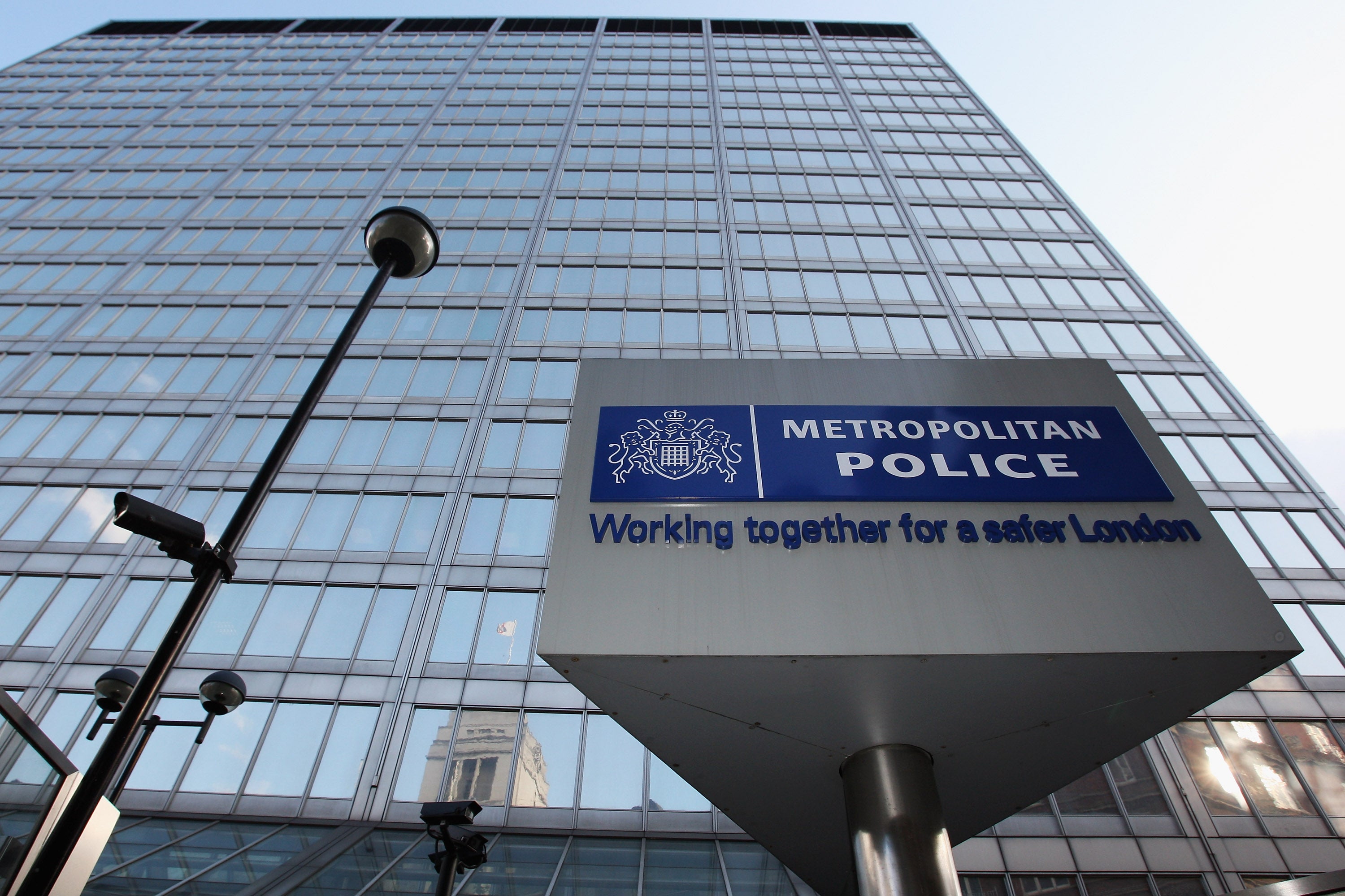The Met should stop worrying about Hamas, and focus on solving crimes here at home
The Metropolitan Police are risking a public relations nightmare by involving themselves in the Israel-Hamas war, writes Mark Almond


The Metropolitan Police’s decision to greet arrivals at London’s airports with a request specific to possible war crimes in Israel and Palestinian-controlled territory was bound to spark a firestorm.
Of course, the fate of individual British residents caught up in the conflict, and the need for coroners to record the cause of their deaths, is something the police routinely help clarify. But trawling for evidence of crimes committed abroad on and by foreigners, in a jurisdiction where there is next to no chance of impartial judicial inquiry, seems a remarkable use of limited police resources.
By all means, pity the poor old Met for stepping into this burning cauldron of polarised public debate. Modern Britain may have abandoned actual empire, but our governments since Tony Blair’s landslide in 1997 have imposed global human rights’ obligations on institutions like the police, reflecting a desire for the post-imperial UK to punch above its weight – or in this case, to poke its nose into places where it is likely to get bitten off.
In practice, the police don’t have the resources (or, cynics would say, the inclination) to investigate every crime committed here in the UK – so shouldn’t the Met be careful about appearing to be selective in the foreign crimes it investigates? Policing terrorism at a safe distance is not the best way to reassure or protect the public.
Atrocities aren’t the monopoly of the Middle East, after all. What about asking recent arrivals from Nigeria, for instance, if they have information about people involved in the recent massacres of hundreds of Christians there? Of course, as soon as I mention that spate of killings, people will demand posters about a score of more brutal conflicts, with prima facie evidence of murder, rape and abundant other atrocities.
And that’s the sore point which the Met has chosen to scratch.
The original brief from Sir Robert Peel to the Metropolitan Police two hundred years ago was that they should go about their duties “without fear or favour”. In recent years the Met has found itself mired in public discontent about its perceived politicisation and bias, as well as the sense that too many officers have abused their position, and even criminalised it.
Leaving aside the recent scandals of murder, rape and other serious offences which have soured public attitudes to the police, the Met’s excursion into international crimes taking place far away is not an irrelevance, but rather a symptom of why it is alienating of public opinion.
Of course, the Met’s defenders – and there are still a few of them – will accuse Boris Johnson and other Tory and Faragist critics of their poster campaign of “playing politics”. But stepping into such a politicised arena as the Gaza conflict with your eyes closed is not impeccable impartiality – it is reckless naivety. Being under fire from all sides might be taken as proof that the Met is standing above the conflict, but a force committed to community policing ought to have seen this coming.
Like too many other British institutions, the Met seems to want to polish its international profile without much actual domestic achievement to boast about. One problem is that the Met is both London’s local police and the go-to force for dealing with serious crimes. Understandably, Londoners unhappy with its handling of weekends of disruptive protests and the rise in violent crime are baffled by the poster campaign. What’s killing people in the capital, they argue, is neither Hamas nor Israel.
Nonetheless, the sharp tensions between people in London and other cities who view the Gaza conflict in such diametrically opposed ways poses policing issues here.
Since the only thing Hamas and Israel appear to agree on is not recognising the jurisdiction of the International Criminal Court, the Met’s intervention seems superfluous. Its authority there is as vacuous as the Palestinian Authority’s own, which recognizes the ICC out of its own impotence.
What if the Met arrests a returning IDF volunteer or a Hamas fighter at Stansted, for instance, on suspicion of an offence in a jurisdiction which Britain abandoned in 1948, and which doesn’t recognise the ICC? Will it face demonstrations – and counter-demonstrations – as well as political and other pressures to release the person or keep them detained?
Far from promoting public order, this could spark tensions among the polarised communities here, without doing any good over there.






Join our commenting forum
Join thought-provoking conversations, follow other Independent readers and see their replies
Comments